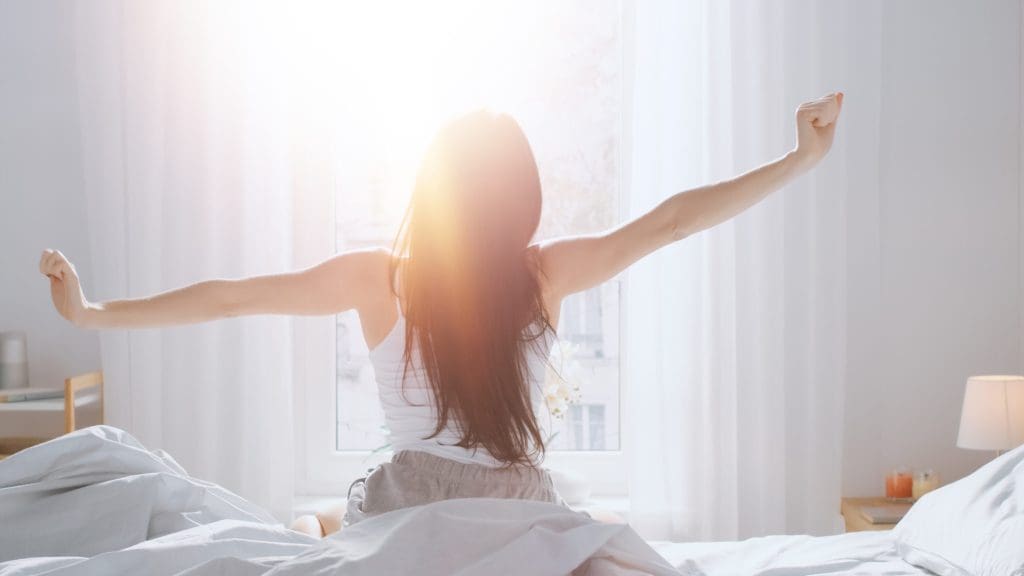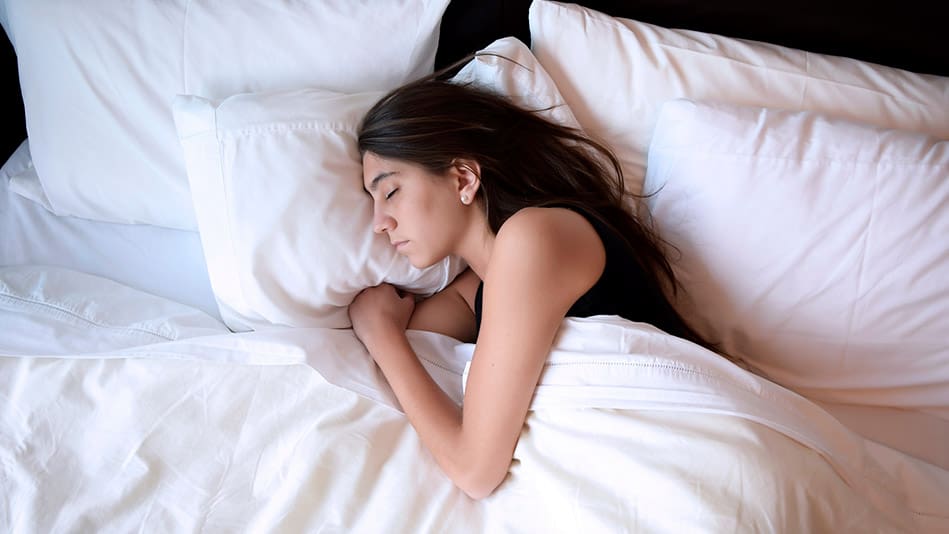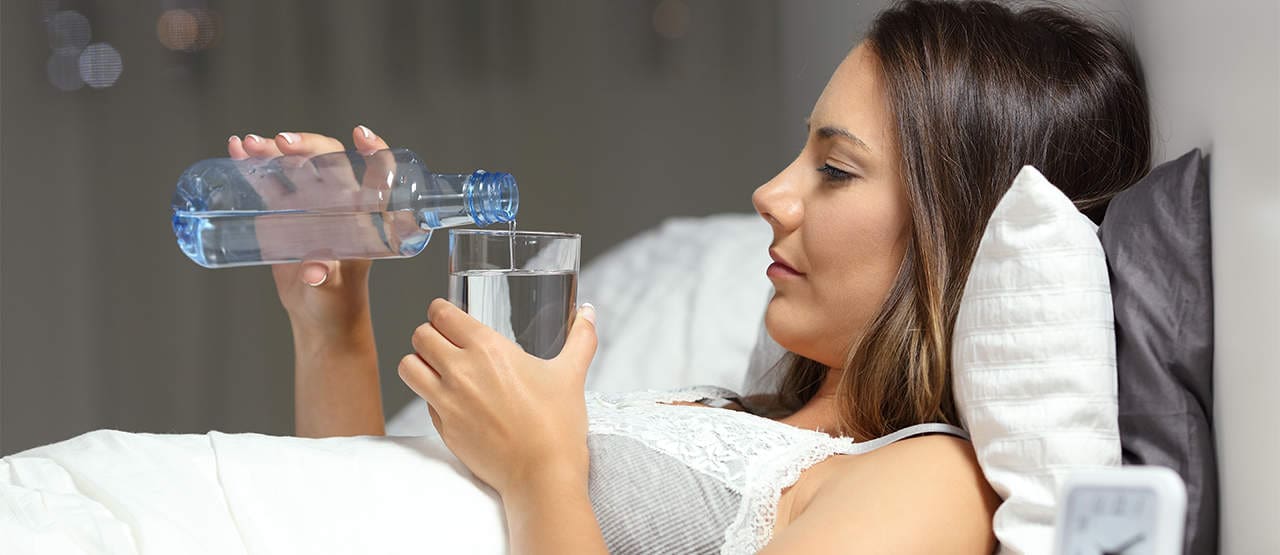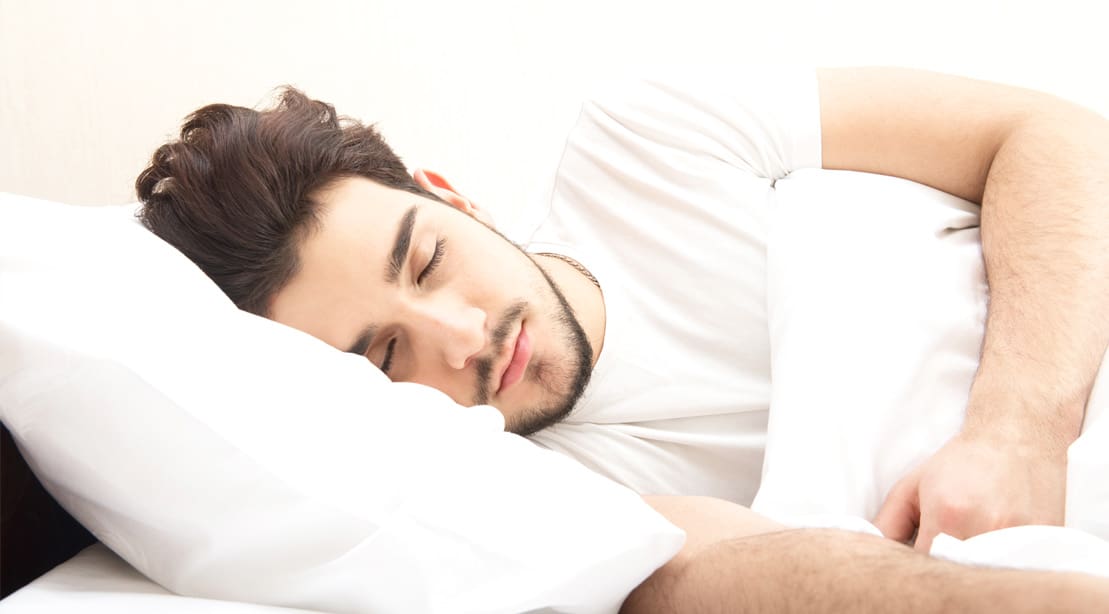Health
Top 10 Sleep Optimization Techniques for Restful Nights


In today’s fast-paced and demanding world, achieving a restful night’s sleep has become a coveted goal for many. The impact of poor sleep on overall health and well-being cannot be overstated.
Fortunately, there are evidence-based techniques that can significantly improve the quality and duration of sleep. From establishing a consistent sleep schedule to incorporating relaxation techniques, these strategies offer promising results for those seeking to optimize their sleep.
By exploring the top 10 sleep optimization techniques, individuals can gain valuable insights into practical steps that can potentially transform their nightly rest.
Key Takeaways
- Establishing a consistent sleep schedule aligns with the body’s natural sleep patterns and promotes better sleep quality and duration.
- Creating a relaxing sleep environment, such as a cool, quiet, and dark bedroom, can help promote restful sleep.
- Practicing good sleep hygiene, including having a consistent bedtime routine and limiting exposure to screens before bed, can contribute to better sleep.
- Managing stress and anxiety through techniques like mindfulness meditation can help promote restful and rejuvenating sleep.
Establishing a Consistent Sleep Schedule
Establishing a consistent sleep schedule is crucial for maintaining optimal sleep quality and overall well-being. When we adhere to a regular sleep routine, our bodies learn to anticipate and prepare for rest, resulting in improved sleep efficiency. This means going to bed and waking up at the same time every day, even on weekends. By doing so, we align our internal body clock, known as the circadian rhythm, which regulates the sleep-wake cycle. This consistency reinforces our body’s natural patterns, promoting better sleep quality and duration.
Maintaining a steady sleep schedule also allows for better planning and allocation of time for other activities, creating a sense of freedom and control over one’s day. It enables individuals to structure their day around their sleep routine, ensuring they have dedicated time for work, leisure, and personal commitments.


Moreover, a consistent sleep schedule reduces the likelihood of feeling groggy or fatigued during the day, allowing for a greater sense of freedom to engage in activities with full energy and focus. Therefore, by prioritizing a consistent sleep schedule, individuals can experience the freedom that comes with improved overall well-being and a more balanced lifestyle.
Creating a Relaxing Sleep Environment
Maintaining a consistent sleep schedule sets the foundation for the next step in optimizing sleep quality: creating a relaxing sleep environment. Your sleep environment plays a crucial role in the quality of your rest. Start by ensuring that your bedroom is cool, quiet, and dark. Consider using blackout curtains or a white noise machine to block out any disruptive light or sound. Additionally, investing in a comfortable mattress and pillows that support your preferred sleeping position can significantly enhance the relaxation of your sleep environment.
Decluttering your bedroom and keeping it tidy can also contribute to a calming atmosphere. Aromatherapy with lavender or chamomile essential oils can promote relaxation and help you unwind before bed. Furthermore, incorporating soothing colors and natural elements, such as plants or natural wood furniture, can contribute to a tranquil sleep environment.
Limiting the use of electronic devices before bed can further create a peaceful atmosphere. By implementing these changes, you can ensure that your sleep environment promotes a sense of freedom and relaxation, setting the stage for restful nights.
Practicing Good Sleep Hygiene
In the quest for better sleep, practicing good sleep hygiene is an essential component. This includes establishing a consistent bedtime routine and creating a sleep environment that promotes relaxation and comfort. By focusing on these key points, individuals can improve their sleep quality and overall well-being.


Bedtime Routine
Developing a consistent bedtime routine is essential for promoting good sleep hygiene and ensuring restful, rejuvenating sleep. By establishing a regular schedule for winding down, your body and mind can signal the transition from wakefulness to sleep.
To optimize your bedtime routine, consider incorporating activities that promote relaxation, such as reading, gentle stretching, or practicing mindfulness. Additionally, limit exposure to screens and bright lights at least an hour before bed to support the body’s natural production of melatonin, the hormone that regulates sleep.
Creating a comfortable sleep environment, with a cool, dark, and quiet space, further enhances the effectiveness of your bedtime routine. By prioritizing and customizing your bedtime ritual, you can empower yourself to enjoy the freedom of consistently restful nights and energized mornings.
Sleep Environment
Establishing an optimal sleep environment is crucial for practicing good sleep hygiene and promoting restful, rejuvenating sleep. Your sleep environment should be a sanctuary, free from distractions and conducive to relaxation. Keep your bedroom cool, dark, and quiet to facilitate uninterrupted sleep. Consider using blackout curtains, earplugs, or a white noise machine to minimize disturbances.
Additionally, invest in a comfortable mattress and pillows that provide adequate support for your body. Create a technology-free zone by keeping electronic devices out of the bedroom to avoid disruptions from notifications and blue light exposure. Keep the room well-ventilated and maintain a clutter-free space to promote a calming atmosphere.


Managing Stress and Anxiety
To effectively manage stress and anxiety, it is important to implement practical techniques that promote relaxation and mental well-being. In the pursuit of freedom from stress and anxiety, consider the following:
- Mindfulness Meditation: Engage in mindfulness meditation to embrace the present moment, alleviate racing thoughts, and foster a sense of inner peace. Find a quiet space, sit or lie down comfortably, and focus on your breath or a specific mantra. Allow yourself to let go of worries and concerns as you become fully present in the now.
- Visual Imagery: Imagine a serene, tranquil setting such as a peaceful beach or a lush forest. Picture yourself immersed in this calming environment, allowing the soothing imagery to transport you away from stress and anxiety. Embrace the freedom of this mental escape, feeling the tension release from your body.
These techniques can empower individuals to cultivate a sense of freedom from the burdens of stress and anxiety, promoting a restful and rejuvenating night’s sleep.
Incorporating Regular Exercise
Regular exercise plays a crucial role in optimizing sleep quality.
The timing of physical activity can significantly impact its effectiveness in promoting better sleep.
Understanding the importance of movement and the best timing for exercise can lead to improved sleep patterns and overall well-being.


Importance of Movement
Incorporating regular exercise is essential for optimizing sleep quality and overall health. Movement during the day helps in regulating the sleep-wake cycle, making it easier to fall asleep and stay asleep throughout the night. When you engage in physical activity, your body temperature rises, and as it cools down afterward, it signals to your body that it’s time to sleep.
Regular exercise also reduces stress and anxiety, allowing for a more peaceful and restful sleep. Additionally, it promotes the release of endorphins, which are natural mood lifters, contributing to a sense of well-being and relaxation.
In essence, incorporating movement through regular exercise not only improves sleep but also empowers individuals to feel more liberated, energized, and in control of their overall health and well-being.
Timing for Best Results
The optimal timing for engaging in physical activity is crucial for maximizing the benefits of regular exercise on sleep quality and overall well-being. This timing builds upon the foundational importance of movement in regulating the sleep-wake cycle and reducing stress and anxiety.
Research suggests that engaging in moderate aerobic exercise, such as brisk walking or cycling, in the late afternoon or early evening can promote better sleep. This timing allows for the body temperature to peak, which can aid in falling asleep faster and experiencing deeper sleep cycles.


Additionally, incorporating strength training exercises earlier in the day can also contribute to improved sleep quality. However, individual preferences and schedules vary, so finding the most suitable time for exercise that aligns with personal energy levels and daily routines is key to reaping the full benefits for enhanced sleep.
Monitoring and Limiting Caffeine Intake
To maintain optimal sleep quality, it is essential to closely monitor and regulate daily caffeine consumption. Caffeine, a stimulant found in coffee, tea, chocolate, and energy drinks, can significantly impact the ability to fall asleep and the quality of sleep.
Here are some techniques to help monitor and limit caffeine intake:
- Mindful Consumption:
- Enjoy your morning coffee mindfully, savoring each sip and being aware of its effects on your body and mind.
- Consider switching to decaffeinated beverages later in the day to avoid disrupting your sleep cycle.
- Alternative Beverages:
- Explore herbal teas, such as chamomile or lavender, as soothing and caffeine-free alternatives to promote relaxation and prepare the body for rest.
- Opt for natural fruit juices or infused water throughout the day to stay hydrated and energized without relying on caffeine.
Adopting a Balanced Diet for Better Sleep
Given the significant impact of dietary choices on overall well-being, the consideration of a balanced diet becomes crucial in optimizing sleep quality and promoting restfulness. A balanced diet that supports better sleep includes a variety of nutrients such as magnesium, calcium, vitamin D, and tryptophan. These nutrients can be found in foods like leafy greens, dairy products, nuts, seeds, and certain fruits.
Incorporating whole grains, lean proteins, and healthy fats into your diet can also contribute to improved sleep. Avoiding heavy, rich, or sugary foods close to bedtime is advisable, as they can cause discomfort and disrupt sleep. Additionally, being mindful of portion sizes and not consuming large meals right before bed can help prevent discomfort and indigestion.


It’s important to stay hydrated, but it’s wise to moderate fluid intake in the evening to reduce the likelihood of disruptive nighttime trips to the bathroom. By adopting a balanced diet that includes these elements, individuals can better support their sleep and overall well-being, ultimately leading to more restful nights and increased freedom to enjoy waking life.
Utilizing Relaxation Techniques
In order to enhance the quality of sleep, incorporating relaxation techniques into one’s daily routine can be highly beneficial.
Techniques such as deep breathing exercises and progressive muscle relaxation have been shown to effectively reduce stress and promote a sense of calmness, which can lead to improved sleep quality.
Deep Breathing Exercises
One effective method for promoting relaxation and optimizing sleep is through the practice of deep breathing exercises. Deep breathing can help calm the mind and body, making it easier to fall asleep and experience more restful nights.
To practice deep breathing, find a comfortable position, whether sitting or lying down, and focus on taking slow, deep breaths. As you inhale, imagine the air filling your lungs and expanding your chest, then exhale slowly, imagining any tension or stress leaving your body with each breath.


To enhance the experience, consider incorporating the following techniques:
- Visualization: Picture a peaceful scene, such as a serene beach or a tranquil forest, as you breathe deeply.
- Progressive muscle relaxation: Start from your toes and work your way up, consciously relaxing each muscle group as you breathe.
Progressive Muscle Relaxation
To effectively induce relaxation and reduce muscle tension, incorporating progressive muscle relaxation techniques can be highly beneficial for optimizing sleep quality.
This method involves tensing and then releasing specific muscle groups to promote a deep sense of relaxation. By consciously contracting and relaxing different muscle groups, individuals can release physical tension and calm the mind, leading to a more restful night’s sleep.
Progressive muscle relaxation is an effective way to alleviate the physical symptoms of stress and anxiety, allowing individuals to achieve a state of deep relaxation before bedtime. This technique empowers individuals to take control of their physical and mental state, promoting a sense of freedom from the burdens of the day and paving the way for a peaceful and rejuvenating night’s sleep.
Minimizing Screen Time Before Bed
Prior to bedtime, it is beneficial to limit exposure to screens in order to promote better sleep quality. The blue light emitted by screens can disrupt the production of melatonin, a hormone that regulates sleep, making it harder to fall asleep. To minimize screen time before bed, consider the following:


- Create a Tech-Free Zone: Designate the bedroom as a tech-free zone to signal to your brain that it’s time to unwind and prepare for sleep. Removing screens from this space can help create a calming environment conducive to relaxation.
- Use dim, warm-colored lighting: Opt for soft, warm-colored lighting in the bedroom to promote relaxation and signal to your body that it’s time to wind down. This can help counteract the stimulating effects of screen exposure.
Seeking Professional Help if Needed
After implementing strategies to minimize screen time before bed, individuals who continue to experience persistent sleep disturbances may benefit from seeking professional help to address underlying sleep issues.
It’s important to recognize that persistent sleep disturbances can have a significant impact on overall health and well-being. Seeking professional help from a sleep specialist, therapist, or healthcare provider can provide valuable insights and personalized strategies to address the root causes of sleep problems.
Professional help can involve a comprehensive evaluation of sleep patterns, lifestyle factors, and any underlying medical or psychological conditions that may be contributing to sleep disturbances. This may include the use of advanced sleep monitoring tools, such as polysomnography, to assess the quality and patterns of sleep.
Additionally, cognitive-behavioral therapy for insomnia (CBT-I) is an evidence-based treatment that can be provided by trained professionals to help individuals address negative thought patterns and behaviors that contribute to poor sleep.
Frequently Asked Questions
How Can I Improve My Sleep Quality if I Work Irregular Hours and Can’t Maintain a Consistent Sleep Schedule?
Improving sleep quality while working irregular hours and lacking a consistent sleep schedule can be challenging. However, implementing a calming bedtime routine, creating a dark, quiet sleep environment, and practicing relaxation techniques can help promote better rest.


Are There Specific Relaxation Techniques That Are Particularly Effective for People With Sleep Disorders Such as Insomnia or Sleep Apnea?
For individuals with sleep disorders like insomnia or sleep apnea, specific relaxation techniques such as progressive muscle relaxation, deep breathing exercises, and mindfulness meditation have shown effectiveness in promoting better sleep quality and managing symptoms.
Can Incorporating Regular Exercise Into My Routine Have a Negative Impact on My Sleep if I Exercise Too Close to Bedtime?
Incorporating regular exercise into your routine can have a negative impact on sleep if done too close to bedtime. Physical activity stimulates the body and mind, making it harder to wind down. Aim to finish exercise at least 3 hours before bedtime for better sleep quality.
What Are Some Lesser-Known Foods or Drinks That Can Negatively Impact Sleep, and How Can I Avoid Consuming Them?
Certain foods and drinks, like caffeine, spicy foods, and heavy meals, can disrupt sleep. Opt for lighter meals, herbal teas, and limiting caffeine intake. Creating a soothing bedtime routine can also aid in promoting restful sleep.
How Do I Know When It’s Time to Seek Professional Help for My Sleep Issues, and What Kind of Professional Should I Seek Out?
Recognizing when to seek professional help for sleep issues is crucial. If sleep problems persist despite lifestyle changes, or if they significantly impact daily functioning, consulting a sleep specialist or healthcare provider is recommended for comprehensive evaluation and tailored treatment.


Hi, I’m Kyle Rivera, a news journalist and blog editor with the Daily Evening News. A TCU alum with a flair for storytelling, I spend my days uncovering impactful stories and my evenings exploring the realms of yoga, cycling, and whimsically bad poetry.
Travel is my escape; I’ve trekked from Tokyo’s neon lights to Iceland’s tranquil vistas. But no journey is complete without Mogli, my Golden Retriever, who’s redefining his breed standards in the most charming ways.
I love connecting with fellow travelers, yogis, cyclists, and anyone who enjoys a laugh at my poetic attempts. If you’re into stories that inspire, travel escapades, or just want to see what Mogli and I are up to, I’d love to hear from you on Instagram or Facebook. Let’s share tales and tips from around the globe!

